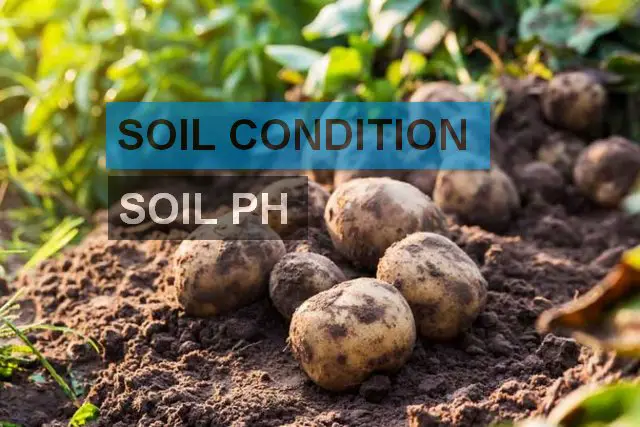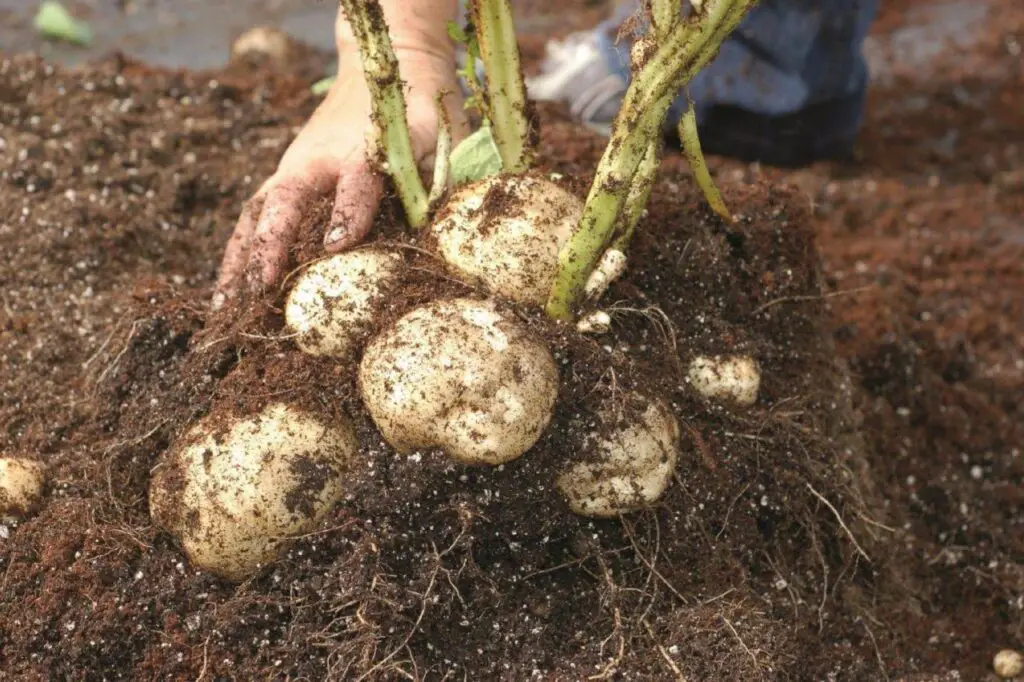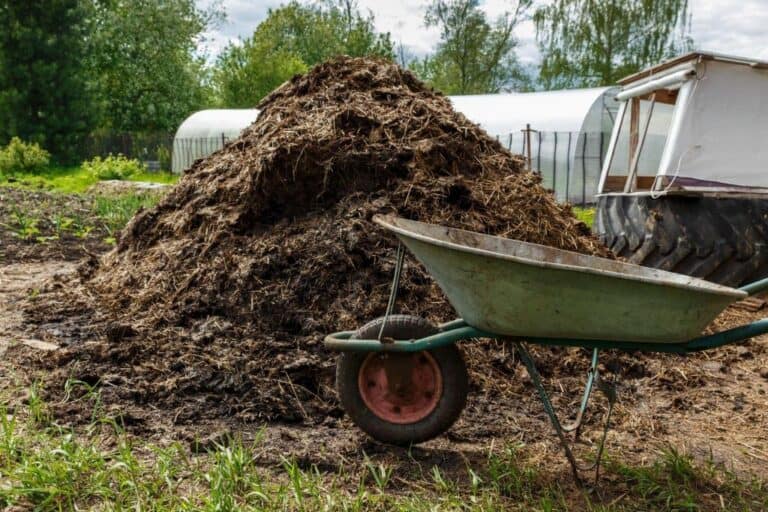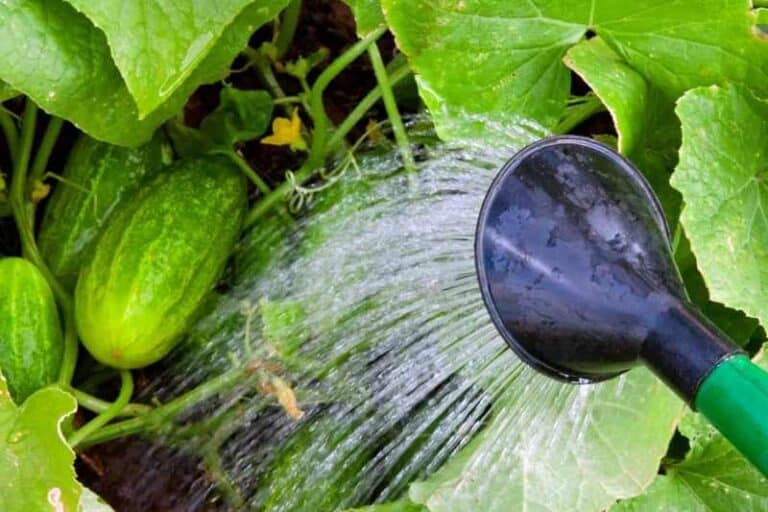Do Potatoes Like Acidic or Alkaline Soil? The Right Soil PH for Potatoes

Potatoes, those versatile tubers beloved in kitchens worldwide, have their own preferences when it comes to soil acidity. Getting the soil pH just right is the key to unlocking a bountiful potato harvest.
So, do potatoes like acidic or alkaline soil?” It’s a query that nudges every budding gardener into the fascinating world of pH balance. Potatoes like soil that is acidic. They grow best when the pH level of the soil is quite acidic, but they can also grow in a pH range close to neutral, around 7.0.
In this comprehensive guide, we’ll delve into the intricate relationship between potatoes and soil chemistry, helping you understand whether they lean towards acidic or alkaline soil and why the right pH matters.
Let’s embark on a journey to discover the optimal conditions for growing robust, flavorful potatoes.
Do Potatoes Like Acidic or Alkaline Soil?
As mentioned earlier, potatoes prefer acidic soil. The ideal pH level for growing potatoes is between 5.2 and 6.5, although they can tolerate a pH range of 4.8 to 7.0. However, they thrive best in more acidic soils, as it increases yield and decreases the incidence of diseases such as scab.
Potatoes are one of the few vegetable crops that can tolerate and thrive in more acidic soils, and they may not do well in soils with a pH higher than 7.
The Basics of Potato Soil pH

Potatoes are not indifferent to the pH levels of their surroundings. As mentioned above, potatoes thrive in soils with a slightly acidic to neutral pH range, typically between 5.2 and 6.5. This preference makes them adaptable to a variety of gardens, but it’s essential to understand the impact of soil pH on their growth.
What Happens in Acidic Soil?
In mildly acidic soils (pH 5.2 to 6), potatoes tend to absorb essential nutrients more efficiently. The slightly acidic environment facilitates the availability of key elements like phosphorus and iron, fostering healthy tuber development. However, extreme acidity can lead to aluminum toxicity, hampering growth.
Exploring Alkaline Territory
On the flip side, alkaline soils (pH above 7) can pose challenges for potato cultivation. Nutrient availability diminishes in alkaline conditions, affecting the plant’s ability to absorb elements crucial for growth. While potatoes can tolerate slightly alkaline soils, maintaining a balanced pH ensures optimal nutrient uptake.
What Happens If Potatoes Grow in Alkaline Soil?
Although starting to grow potatoes is exciting, it is very important to know what will happen if you do so in alkaline soil. Here’s a glimpse into what happens when potatoes find themselves in a soil environment with pH levels above 7.
1. Nutrient Challenges
Alkaline soils pose a significant challenge for potatoes as they hinder nutrient absorption. Key elements like phosphorus, iron, and manganese become less available, stunting the plant’s growth and impacting tuber development.
2. Root Development Hindrance
Potatoes, with their intricate root systems, struggle to establish themselves in alkaline environments. The impediment in root development affects the plant’s ability to access water and nutrients, leading to weaker plants and smaller yields.
3. Increased Susceptibility to Diseases
Alkaline conditions make potato plants more vulnerable to diseases. The weakened state of the plants, coupled with reduced nutrient uptake, creates an environment conducive to various pathogens, compromising the overall health of the crop.
Solutions for Alkaline Soil
When faced with the challenges of alkaline soil, taking proactive measures is key to ensuring your potatoes flourish. Consider these effective solutions to neutralize or adjust pH levels and create an optimal potato growing environment:
- Organic Matter: Incorporating organic matter, such as compost or well-rotted manure, enhances soil structure and introduces acidity. This not only improves nutrient retention but also aids in creating a balanced pH.
- Elemental Sulfur: An efficient way to lower pH in alkaline soil, elemental sulfur acts as a soil amendment. Applying it judiciously can help create the mildly acidic conditions thats potatoes love.
- Acidifying Fertilizers: Choose fertilizers specifically designed for acid-loving plants. Ammonium sulfate or urea-based fertilizers work wonders at reducing soil pH, ensuring a conducive environment for potato growth.
Testing and Adjusting Soil pH

Understanding your soil’s pH is the first step in creating a conducive environment for potatoes. Home testing kits, readily available at garden centers, provide a quick assessment. For a more detailed analysis, consider sending a sample to a professional laboratory.
Quick Tips for Testing Soil pH
- Use a Soil Testing Kit: These kits are user-friendly and offer a quick snapshot of your soil’s pH.
- Collect Samples: Take samples from various spots in your garden to ensure an accurate representation.
- Follow Instructions: Read and follow the kit instructions carefully for reliable results.
Adjusting pH Levels
Once you know your soil’s pH, adjustments may be necessary.
Acidifying Soil
For overly alkaline soil, consider:
- Adding Elemental Sulfur: Gradually introduces acidity.
- Using Acidifying Fertilizers: Ammonium sulfate or urea-based fertilizers can help lower pH.
Alkalizing Soil
To raise pH in acidic soil, try:
- Adding Lime: Commonly used to increase alkalinity.
- Incorporating Wood Ash: Provides a natural source of alkaline elements.
Potato Varieties and Soil pH Preferences
When learning about potatoes, it’s fascinating to witness the diversity among various potato varieties and how they interact with different soil pH levels. A vibrant array of potatoes, each with its own unique characteristics, from Russet to Yukon Gold. These varieties showcase a spectrum of responses to soil pH, emphasizing the importance of tailored cultivation.
Let’s explore the specifics. Take the russet, for example, known for its versatility and popularity in baking. This variety tends to thrive in slightly acidic to neutral soil, ideally in the pH range of 5.8 to 6.5. On the other end of the spectrum, Yukon Gold, celebrated for its buttery flavor, demonstrates adaptability to slightly more acidic conditions, thriving in the pH range of 5.5 to 6.0.
To simplify the complexity, consider this table highlighting the preferred pH ranges for selected potato varieties:
| Potato Variety | Preferred pH Range |
| Russet | 5.8 – 6.5 |
| Yukon Gold | 5.5 – 6.0 |
| Red Pontiac | 5.5 – 6.5 |
| Fingerling | 5.8 – 6.2 |
This comprehensive table provides a broader perspective on how different potato varieties respond to varying soil pH levels. For instance, the Red Pontiac, a popular red-skinned variety, thrives in slightly acidic to neutral conditions with a preferred pH range of 5.5 to 6.5. Meanwhile, the Fingerling, known for its unique shape and flavor, exhibits optimal growth in soil with a pH range of 5.8 to 6.2.
This detailed breakdown empowers farmers with precise insights, allowing them to make informed decisions when matching specific potato varieties with the most suitable pH conditions for cultivation.
By embracing this knowledge, farmers can enhance the productivity and quality of their potato crops, creating a harmonious balance between varieties and soil pH preferences.
Conclusion
In the quest for the perfect potatoes, understanding their soil preferences is paramount. By catering to their preference for slightly acidic to neutral soil pH, you’re laying the groundwork for a thriving harvest. Regular soil testing, thoughtful adjustments, and adherence to best practices in planting and maintenance will set you on the path to potato-growing success.
So, go ahead, get your hands dirty, and cultivate those delicious spuds in soil that’s just right for them!
FAQs
What pH level do potatoes prefer in the soil?
Potatoes generally thrive in slightly acidic to neutral soil, with an optimal pH range of 5.3 to 6.5. This range provides the ideal conditions for nutrient uptake and supports healthy tuber development.
Can potatoes grow in alkaline soil?
While potatoes can tolerate slightly alkaline conditions, they prefer slightly acidic to neutral soil. Alkaline soils may limit nutrient availability, impacting potato growth. Soil amendments and proper care can help mitigate alkalinity.
How does soil pH affect potato yield?
Soil pH significantly influences potato yield. Maintaining the recommended pH range ensures efficient nutrient uptake, supporting robust plant growth, increased tuber formation, and ultimately higher potato yields.
What happens if soil pH is too high for potatoes?
Excessively high soil pH (alkaline conditions) can lead to nutrient deficiencies, particularly in iron and manganese. This may hinder potato growth, resulting in smaller yields. Acidifying soil through amendments can help counteract adverse effects and promote optimal potato development.
Why is soil pH crucial for potato growth and soil acidity?
Soil pH directly affects nutrient availability for potatoes. Maintaining the right acidity level (pH) ensures optimal nutrient uptake, supports healthy potato growth, and maximizes yields.
How do acidic or alkaline soils impact the chemistry of potatoes?
The soil’s acidity, or alkalinity, influences the chemistry of potatoes, affecting nutrient absorption and overall plant metabolism. Understanding and managing soil pH is essential for promoting the right soil chemistry for robust potato development.
How can farmers optimize soil pH for the best potato yields?
Farmers can optimize soil pH for potatoes by conducting regular soil testing, applying appropriate amendments, and choosing potato varieties suited to their soil conditions. This proactive approach ensures the best pH for cultivation and promotes successful potato yields.







